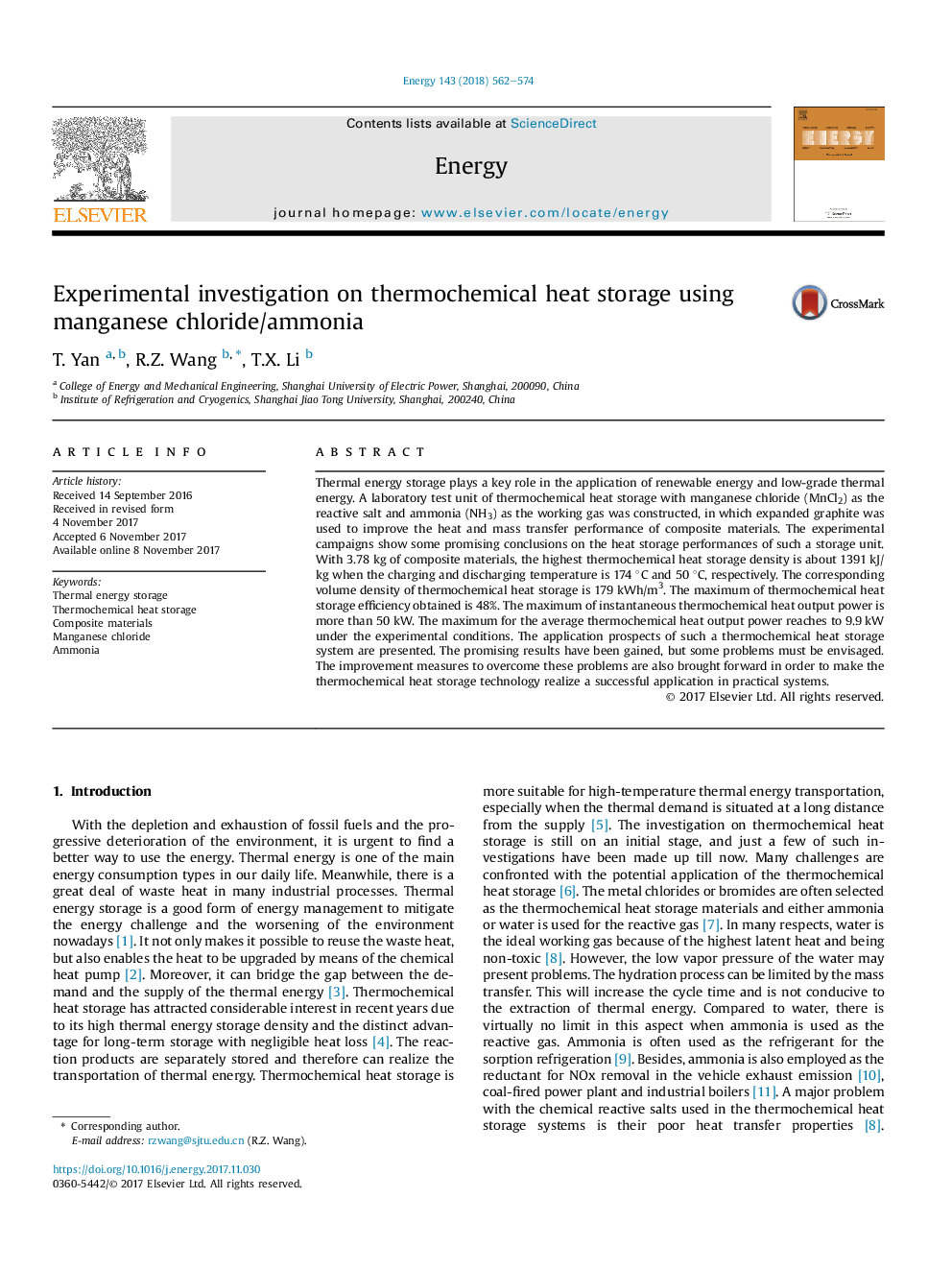| Article ID | Journal | Published Year | Pages | File Type |
|---|---|---|---|---|
| 8072434 | Energy | 2018 | 13 Pages |
Abstract
Thermal energy storage plays a key role in the application of renewable energy and low-grade thermal energy. A laboratory test unit of thermochemical heat storage with manganese chloride (MnCl2) as the reactive salt and ammonia (NH3) as the working gas was constructed, in which expanded graphite was used to improve the heat and mass transfer performance of composite materials. The experimental campaigns show some promising conclusions on the heat storage performances of such a storage unit. With 3.78 kg of composite materials, the highest thermochemical heat storage density is about 1391 kJ/kg when the charging and discharging temperature is 174 °C and 50 °C, respectively. The corresponding volume density of thermochemical heat storage is 179 kWh/m3. The maximum of thermochemical heat storage efficiency obtained is 48%. The maximum of instantaneous thermochemical heat output power is more than 50 kW. The maximum for the average thermochemical heat output power reaches to 9.9 kW under the experimental conditions. The application prospects of such a thermochemical heat storage system are presented. The promising results have been gained, but some problems must be envisaged. The improvement measures to overcome these problems are also brought forward in order to make the thermochemical heat storage technology realize a successful application in practical systems.
Keywords
Related Topics
Physical Sciences and Engineering
Energy
Energy (General)
Authors
T. Yan, R.Z. Wang, T.X. Li,
